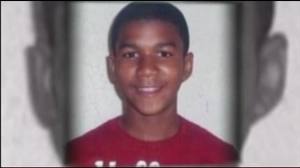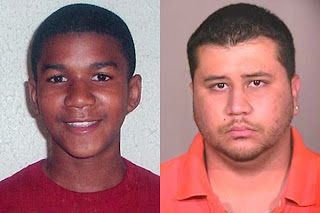Real cops, cops who know what critical elements make up a real police investigation, know that making assumptions can destroy a case. When assumptions find their way into common police investigations along the way, the result is often missed evidence leading to wrong or incomplete conclusions. When assumptions find their way into homicide investigations along the way, the result can be unsolved cases or wrongful convictions. When a homicide investigation begins with assumptions, the result will be the loss of justice for those who lost a life and potential loss of liberty for those whose wait for final a judgment, at least on earth. And worse they can often misdirect the primary purpose of a criminal investigation to eliminate suspects to identify the guilty, not identify the guilty to eliminate the investigation.
Assumptions can and often do make their high profile laws in high profile cases. And it does not get much more high profile than the “Stand Your Ground” in the Trayvon Martin Case. And it does not get much more obvious that the investigation case started with a number
 of assumptions and continues being constructed around those continuing assumptions. Even without knowing all the elements on which the investigation began and resulted in the arrest of George Zimmerman for Murder II, we know one thing for sure: Cops assumed they had to answer only one question, “Was George Zimmerman ‘Standing his ground’ when he killed Trayvon Martin?”
of assumptions and continues being constructed around those continuing assumptions. Even without knowing all the elements on which the investigation began and resulted in the arrest of George Zimmerman for Murder II, we know one thing for sure: Cops assumed they had to answer only one question, “Was George Zimmerman ‘Standing his ground’ when he killed Trayvon Martin?”  Standing Your Ground relates to using force to protecting one’s life or the life of another. It has evolved over our nearly two hundred and fifty year history. It has found clear definition in our state statutes and case law. The power to define and judge the elements of how we can use force to protect our lives, if not our property, is left to the individual states. Seldom has the US Supreme Court ventured into what creates “reasonable force” even when use of deadly physical by law enforcement is in question. The point is that as a nation we assume these decisions are best left to the states. However, it is not so clear when Standing Your Ground meets self defense in a public place and means someone lives and someone dies.
Standing Your Ground relates to using force to protecting one’s life or the life of another. It has evolved over our nearly two hundred and fifty year history. It has found clear definition in our state statutes and case law. The power to define and judge the elements of how we can use force to protect our lives, if not our property, is left to the individual states. Seldom has the US Supreme Court ventured into what creates “reasonable force” even when use of deadly physical by law enforcement is in question. The point is that as a nation we assume these decisions are best left to the states. However, it is not so clear when Standing Your Ground meets self defense in a public place and means someone lives and someone dies.
But states like Florida decided that Standing Your Ground meant taking self defense “to the streets” instead of keeping it in the home. Simply put, when we defend our lives from intruders who come into our home or onto our property, who, but for the lack of any other explanation, are there for criminal purposes, Standing Your Ground makes more sense. But when the confrontation happens on the street, sorting the good actor from the bad is harder.
 In that public place or on that neutral ground does it matter who lives or who dies when someone Stands Their Ground? Does potential guilt automatically attach itself to the person who lives and innocence to those who die? Or should we assume that if one is armed and other not that the one with the gun was the one standing ground? And what if the one who died unarmed was Standing Ground because the one with the gun created the potential for a conflict that was neither reasonable nor justifiable? And when a juvenile in a hoodie and an adult are involved should we assume that an adult was the only one entitled to Stand his Ground?
In that public place or on that neutral ground does it matter who lives or who dies when someone Stands Their Ground? Does potential guilt automatically attach itself to the person who lives and innocence to those who die? Or should we assume that if one is armed and other not that the one with the gun was the one standing ground? And what if the one who died unarmed was Standing Ground because the one with the gun created the potential for a conflict that was neither reasonable nor justifiable? And when a juvenile in a hoodie and an adult are involved should we assume that an adult was the only one entitled to Stand his Ground? Imagine that on February 26th George Zimmerman’s and Trayvon Martin’s lives had crossed in the normal course of everyday life. Assume that George Zimmerman had not called 911 to report a suspicious Trayvon Martin and that the catalyst for the conflict had not been created. And what if Trayvon had wrestled the gun from George Zimmerman and taken Zimmerman’s life? Should we assume the Zimmerman died Standing His Ground and Trayvon is guilty of being up to no good as reported by Zimmerman in the minutes before shots were fired? Maybe Trayvon was just Standing His Ground. I would argue that who lives and who dies can have little to do with how self defense should be defined and the same for determining who is Standing Their Ground
On the night of this tragedy it is obvious to the trained eye that many assumptions were built into the base of this investigation. Perhaps none more sobering than that the last man standing should be judged against the self defense standard of Standing your Ground. If the Sanford police did not assume the George Zimmerman should be arrested they obviously assumed that it was him who was the one Standing His Ground. They must have or else they would have made an arrest that night or pursued it vigorously at the prosecutor level. The State Attorney must have assumed that time did not matter in completing the investigation or else he would have convened a Grand Jury to bring the investigation to a quick conclusion. Doing so would have given the community a sense of confidence that visible justice, no matter the final result, was on the way.
And worst of all, both the police and the prosecutor must have assumed that the community did not care much about the lack of visible justice in this case. They must have or else they surely would not have intentionally set up this political powder keg. They must have or else they wouldn’t have left us with the inescapable conclusion that the armed person who Stands Your Ground is always the last man standing.
Bernie Giusto is the former Multnomah County Sheriff, former Gresham Police Chief and former OSP Trooper.
Tell ’em where you saw it. Http://www.victoriataft.com





